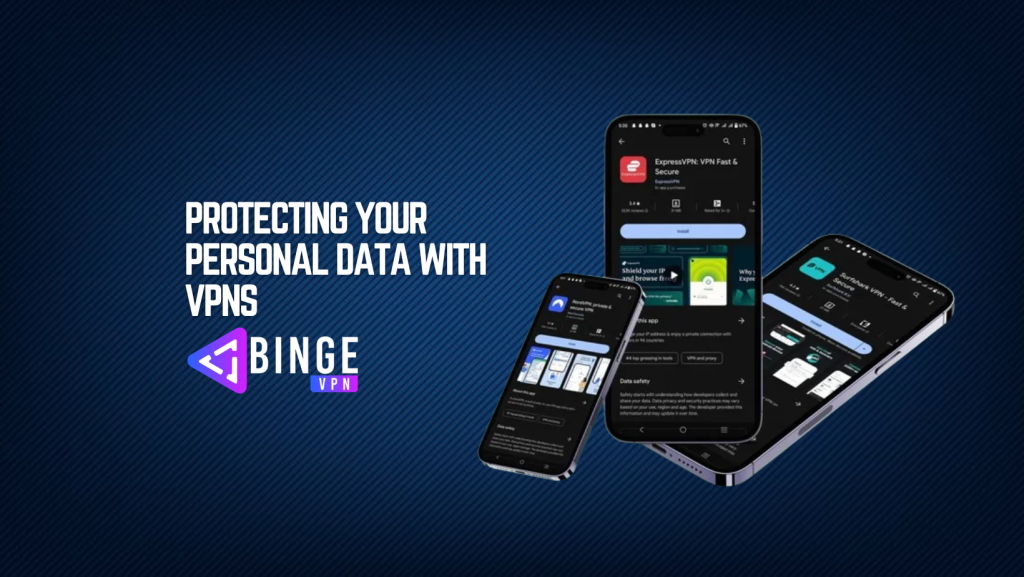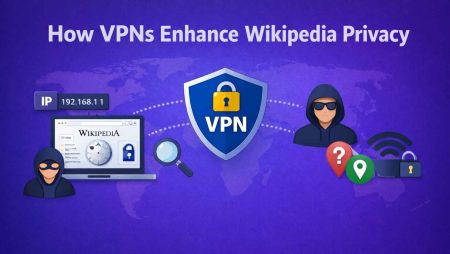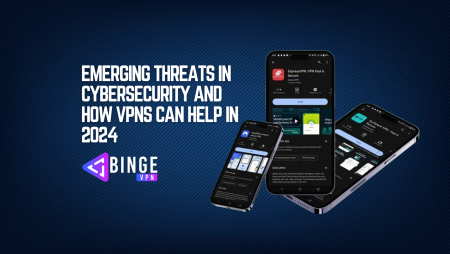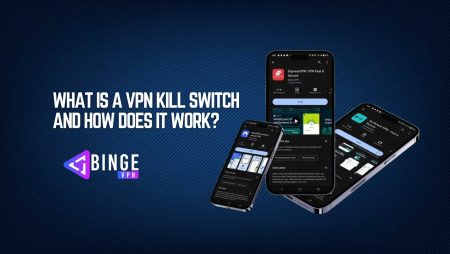In today’s hyper-connected world, protecting personal data online has become a significant concern. With increasing cyber threats, government surveillance, and the continuous tracking by websites and apps, maintaining online privacy is more challenging than ever. Fortunately, Virtual Private Networks (VPNs) have emerged as a powerful solution for safeguarding personal data. VPNs offer a way to encrypt your internet connection, shield your online activities from prying eyes, and enhance your security on public networks.
This comprehensive guide will walk you through the importance of VPNs, how they protect your personal data, the benefits of using a VPN, and provide a clear understanding of how to choose the right VPN service. By the end, you’ll have all the information you need to use VPNs to protect your personal data effectively.
Why Protecting Personal Data Online Is Critical
Every time you go online—whether it’s to check emails, shop, browse social media, or stream content—you’re sharing information. Many websites and applications collect your data, such as your browsing habits, IP address, location, and even your financial details. This data can be used to target ads, sold to third parties, or, worse, fall into the hands of hackers and cybercriminals.
Hackers exploit vulnerable internet connections, particularly in public places like coffee shops, airports, and hotels, to access personal information such as passwords, credit card details, and other sensitive data. Government surveillance is also becoming more common, with many countries enforcing data retention laws, requiring ISPs to store users’ internet activities.
In this digital landscape, protecting your personal data is no longer optional—it’s a necessity.
What Is a VPN and How Does It Work?
A VPN is a service that creates a secure, encrypted connection between your device and the internet. It routes your internet traffic through a VPN server, masking your IP address and encrypting your data, making it difficult for anyone to monitor or track your online activity.
Here’s a step-by-step breakdown of how VPNs work:
- Encryption: When you connect to the internet through a VPN, all your data is encrypted. This means that any information you send or receive is transformed into unreadable code, ensuring that only the intended recipient can decipher it.
- IP Address Masking: Your device is assigned a new IP address from the VPN server, concealing your actual IP address. This prevents websites, apps, or hackers from knowing your true location or identity.
- Private Browsing: Your internet traffic is routed through a VPN server, making it appear as though your online activity originates from that server’s location rather than your actual device.
How VPNs Protect Your Personal Data
VPNs provide several layers of protection for your personal data:
1. Encryption of Data
Encryption is one of the core features of VPNs. When your internet connection is encrypted, any data you transmit becomes unreadable to outsiders, making it extremely difficult for hackers or even government agencies to intercept or decipher it. VPNs use advanced encryption protocols like AES-256, which is the same level of encryption used by governments and militaries to protect classified information.
2. Anonymity and IP Masking
When you use a VPN, your real IP address is hidden, and you’re assigned a new one from the VPN server’s location. This ensures that websites and online services cannot trace your activities back to you. By masking your IP address, a VPN also prevents websites from tracking your location and browsing habits, offering an extra layer of anonymity.
3. Protection on Public Wi-Fi
Public Wi-Fi networks are notoriously insecure, making it easy for hackers to intercept the data of users connected to these networks. VPNs provide a shield against these threats by encrypting your connection, ensuring that even if someone tries to intercept your data on a public Wi-Fi network, they’ll only see unreadable encrypted information.
4. Avoiding ISP Tracking
Internet Service Providers (ISPs) often monitor and log user activities, which may then be handed over to third parties, sold to advertisers, or shared with the government. With a VPN, your ISP will no longer be able to see your internet traffic because all data is routed through the VPN server. This means your online activity is hidden from your ISP, protecting your privacy.
5. Bypassing Censorship and Geo-Restrictions
Many countries impose strict internet censorship, blocking access to certain websites or online services. Similarly, streaming platforms like Netflix, Hulu, and BBC iPlayer restrict access to content based on the user’s location. VPNs allow you to bypass these geo-restrictions by connecting to servers in different countries, granting you access to censored or region-locked content while also keeping your identity and data protected.
Key Benefits of Using a VPN
Using a VPN offers numerous advantages when it comes to protecting your personal data:
1. Enhanced Privacy
A VPN shields your browsing activity from ISPs, advertisers, and even the government. Since VPNs encrypt your traffic, no one will be able to track your online behavior or know what sites you’re visiting.
2. Increased Security
VPNs are essential for securing your data on public Wi-Fi networks, which are often targeted by cybercriminals. A VPN protects your sensitive data, such as login credentials, emails, and credit card information, by encrypting your connection.
3. Access to Global Content
Many streaming platforms and websites restrict access to content based on the user’s location. With a VPN, you can connect to a server in a different country, bypassing geo-blocks and accessing the content you want, no matter where you are.
4. Anonymous Torrenting
If you engage in torrenting, using a VPN can protect your privacy and identity by hiding your IP address from other users on the network. This is crucial for avoiding legal trouble and ensuring your anonymity.
5. Bypassing Government Censorship
For individuals living in countries with heavy internet censorship, a VPN is often the only way to access blocked websites and services. A VPN allows users to connect to servers in countries with open internet access, bypassing government-imposed restrictions and ensuring free access to information.
Choosing the Right VPN for Protecting Your Personal Data
Not all VPNs are created equal, and it’s important to choose a service that offers robust protection. Here’s what you should look for when selecting a VPN to protect your personal data:
1. No-Logs Policy
Choose a VPN provider that follows a strict no-logs policy, meaning they don’t store records of your online activities. This is crucial for ensuring that your data remains private even if the VPN provider is requested to share information.
2. Strong Encryption
Look for VPNs that offer top-notch encryption standards, such as AES-256, which is considered the gold standard in encryption. This ensures that your data is securely protected.
3. Multiple Servers and Locations
A good VPN provider will have servers in multiple countries, allowing you to connect to various locations and bypass geo-restrictions. More servers also mean faster and more reliable connections.
4. Kill Switch Feature
A kill switch ensures that if your VPN connection drops unexpectedly, your internet connection is automatically cut off to prevent any data leaks. This is a crucial security feature for maintaining privacy.
5. User-Friendly Interface
The VPN you choose should have an intuitive and easy-to-use interface, allowing you to connect quickly and customize settings as needed without technical expertise.
6. Multi-Device Compatibility
Make sure the VPN you choose supports multiple devices and operating systems, such as Windows, macOS, iOS, Android, and Linux. Some VPNs also offer browser extensions for easier use.
FAQs
Can VPNs Protect Me from Hackers?
Yes, VPNs can protect your data from hackers by encrypting your internet connection, making it difficult for them to access your information. This is especially useful on unsecured public Wi-Fi networks.
Can a VPN Be Traced?
While a VPN can make it difficult to trace your online activities, it’s not completely untraceable. Government agencies or sophisticated hackers may still find ways to trace your activity if they have the resources and legal means. However, a VPN greatly enhances your anonymity compared to not using one.
Will a VPN Protect My Personal Data on All Devices?
Yes, as long as you install the VPN app or configure it on your device, it will protect your internet traffic. Most VPN providers offer apps for a wide range of devices, including smartphones, tablets, computers, and routers.
Wrapping Up
Protecting your personal data in today’s interconnected world is crucial, and using a VPN is one of the most effective ways to enhance your online security and privacy. VPNs provide encrypted tunnels for your internet traffic, hiding your activities from hackers, ISPs, and third-party trackers, ensuring that your sensitive information remains private. Whether you’re browsing on public Wi-Fi, accessing content from abroad, or simply wanting to keep your data secure at home, a VPN acts as a shield against potential breaches.
Choosing the right VPN is key—look for a service with a no-logs policy, strong encryption, and additional features like kill switches and DNS leak protection. By incorporating a VPN into your daily digital routine, you can significantly reduce risks and take control of your personal data in an ever-evolving online landscape.




